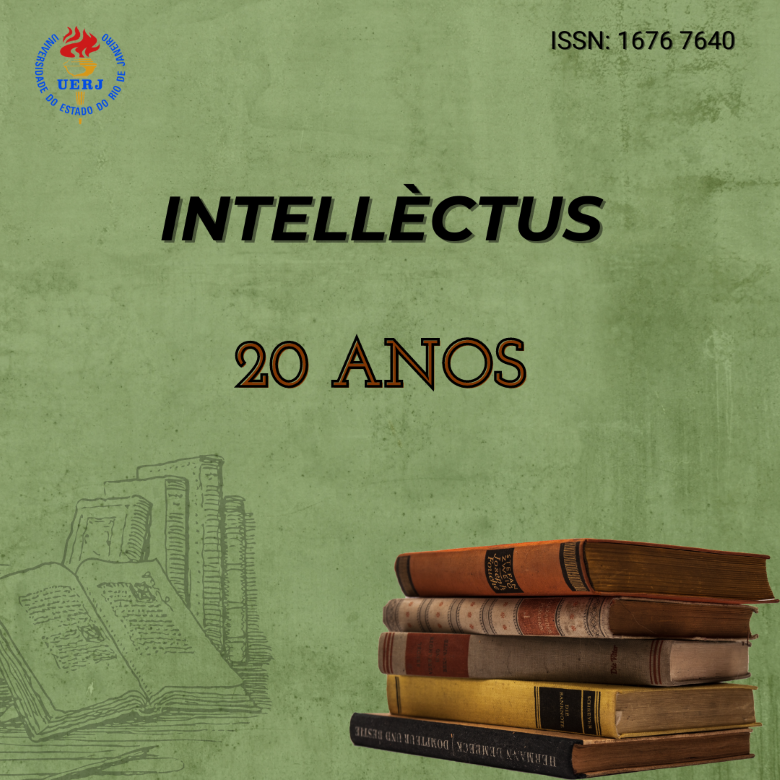From the Protocols of the Elders of Zion to Q-Anon: the renewal of conspiracy discourse among the contemporary far right
DOI:
https://doi.org/10.12957/intellectus.2022.65226Keywords:
conspiracy, far right, neo-fascismAbstract
This article seeks to analyze the presence of conspiracy theories among organizations and supporters of political ideas located on the extreme right of the traditional political spectrum. We will see how, from the emergence of fascism in the first half of the 20th century to extremist groups today, conspiracy theories remain a fundamental part of an ideological narrative based on the fear of predetermined enemies. Thus, we will be able to perceive the historicity of this practice, its reminiscences and the transformations it has undergone to remain useful to the extreme right in the present. Through this route, we will also be able to verify the changes that extreme right-wing political behaviors have undergone and what are their singularities today.
Downloads
References
ADORNO, Theodor (2004). Educação e emancipação. Trad. Wolfgang Leo Maar. São Paulo: Paz e Terra.
BEN-ITTO, Hadassa (2005). The Lie That Wouldn’t Die: The Protocols of the Elders of Zion. New York: Vallentine Mitchell.
BERTONHA, João F (2014). Integralismo: problemas, perspectivas e questões historiográficas. Maringá: EdUEM.
COPSEY, Nigel (2004). Contemporary British fascism: the British National Party and the quest for legitimacy. London: Palgrave Macmillan.
GIANOCELLI, Eve (2021). The unification of the New Right? On Europe, identity politics and reactionary ideologies. New Perspectives. London, vol. 1, n. 04, pp. 364-375. Disponível em:<https://www.ceeol.com/search/article-detail?id=998906>. Acesso em: 10 out. 2021.
GINZBURG, Carlo (2006). O fio e os rastros: verdadeiro, falso, fictício. Trad. Rosa Freire Aguiar. São Paulo: Companhia das Letras.
HERMANSSON, P. & LAWRENCE, D. & MULHALL, J. & MURDOCH, S (2020). The International Alt-Right: Fascism for the 21st Century? Los Angeles: Routledge.
HOBSBAWM, Eric J (1995). Era dos extremos: o breve século XX. Trad. Marcos Santarrita. São Paulo: Companhia das Letras.
HOBSBAWM, Eric J. (2015). Era dos Impérios. São Paulo: Paz e Terra.
KONDER, Leandro (2009). Introdução ao fascismo. São Paulo: Expressão Popular. LÉVY, Pierre (1999). Cibercultura. Trad. Carlos Irineu da Costa. São Paulo: Editora 34.
MARTINEZ JR., B. A.; SELEPAK, Andrew (2013). Power and violence in Angry Aryans song lyrics: a racist skinhead communication strategy to recruit and shape a collective identity in the White Power movement. C&S. São Bernardo do Campo, v. 35, n. 1, pp. 153-180. Disponível em: <https://www.metodista.br/revistas/revistas- ims/index.php/CSO/article/viewFile/4427/3706>. Acesso em 08 dez. 2021.
MAYNARD, Dilton C. S. (2011). Escritos sobre história e internet. Rio de Janeiro: Editora Multifoco.
McCANN, Frank (2011). Brasil e Estados Unidos: dois séculos de relacionamento. In: MUNHOZ, Sidnei J. & TEIXEIRA DA SILVA, F. C. (Orgs.). Relações Brasil-Estados Unidos: séculos XX e XXI. Maringá: EdUEM, pp. 25-64.
MOSKALENKO, Sophia & McCAULEY, Clark (2021). QAnon: Radical Opinion versus Radical Action. Terrorism research initiative, vol. 15, n. 02, pp. 142-146.
OLIVEIRA, Pedro Carvalho (2018). O som do ódio: uma história do rock neofascista e dos neofascismos no tempo presente. Curitiba: CRV Editora.
PAXTON, Robert O (2007). Anatomia do fascismo. Trad. Patrícia Zimbres e Paula Zimbres. São Paulo: Paz e Terra.
PHILLIPS, Whitney (2015). This Is Why We Can't Have Nice Things: Mapping the Relationship between Online Trolling and Mainstream Culture. Massachussetts: The MIT Press.
PIDGEN, Charles R. (2007). Conspiracy Theories and the Conventional Wisdom. Episteme: a Journal of Social Epistemology (New York), vol. 04, n. 2, p. 222, 2007.
SEDGWICK, Mark (2004). Against the Modern World: Traditionalism and the Secret Intellectual History of the Twentieth Century. Oxford: Oxford University Press.
SKIDMORE, Thomas (1982). Brasil: de Getúlio a Castelo. Trad. Ismênia Tundes Dantas. 14 ed. São Paulo: Paz e Terra.
STERN, Alexandra Minna (2020). Proud Boys and the White Ethnostate: How the Alt- Right Is Warping the American Imagination. New York: Beacon Press.
TEIXEIRA DA SILVA, F. C (2004). Revoluções conservadoras, terror e fundamentalismo: regressões do indivíduo na modernidade. In: TEIXEIRA DA SILVA, F. C. (Org.). O século sombrio: uma história geral do século XX. Rio de Janeiro: Campus/Elsevier, pp. 123-146.
TEIXEIRA DA SILVA, F. C. (2014). Sobre os tribunais no Terceiro Reich. Os fascismos e ditaduras: o que ainda há para estudar? In: SCHURSTER, Karl et al. (Orgs.). Velhas e novas direitas: a atualidade de uma polêmica. Recife: EdUPE, pp. 28-48.
TOBIAS, Fritz (1964). The Reichstag Fire. Nova York: Putnam, 1964.
TUTERS, Marc (2021). Fashwave and the false paradox of ironic nazism. Krisis: journal for contemporary philosofy. Groningen, vol. 01, pp. 172-178. Disponível em: https://scholar.archive.org/work/3k4bhnpqrjecjjlrwct7qmnjsu/access/wayback/https://kris is.eu/article/download/37162/35165>. Acesso em: 28 dez. 2021.
Downloads
Published
How to Cite
Issue
Section
License
Autores que publicam nesta revista concordam com os seguintes termos:
Os autores mantêm os direitos autorais e concedem à revista Intellèctus o direito de publicação, sob uma Licença Creative Commons Atribuição 4.0 Internacional, a qual permite que outros distribuam, remixem, adaptem e criem a partir do seu trabalho, mesmo para fins comerciais, desde que lhe atribuam o devido crédito pela criação original.
Os dados e conceitos abordados são da exclusiva responsabilidade do autor.
A revista Intellèctus está licenciada com uma licença Creative Commons Atribuição 4.0 Internacional






